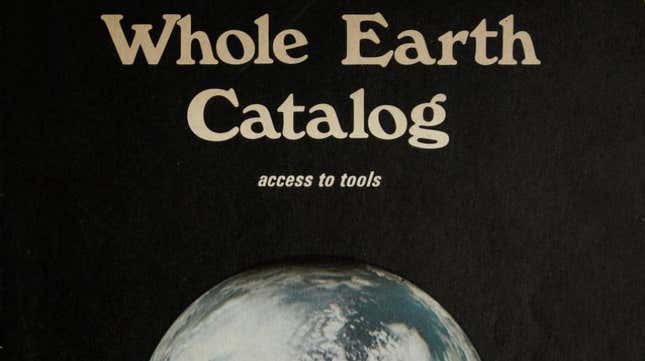
Remember the Whole Earth Catalog? If you’re a fan of the anarcho-libertarian magazine that helped usher in a popular interest in all things tech and internet culture, there’s good news: a nearly complete collection of the publication’s archive has been digitized and uploaded to the web for easy browsing.
Whole Earth was first published in 1968, during the heyday of the ‘60s counterculture, by writer and futurist Stewart Brand. The publication’s motto—“access to tools”—referenced its interest in providing readers with products and DIY advice that could allow them to be more self-reliant and get more in touch with the natural world. The original magazine only published several times but the franchise would later evolve, developing several offshoots that focused, among other things, on helping to circulate an emergent cyberculture.
On Friday, Wired pointed out that Whole Earth’s archive had been uploaded to the web. The project to restore the collection and digitize it was directed by Barry Threw, the executive director of Gray Area, a San Francisco art collective, Wired writes. Threw worked together with the Long Now Foundation, a cultural non-profit, as well as the Internet Archive, which is hosting the collection online. Each issue is available in PDF form, as well as being available on the Internet Archive’s website.
Included in the archive are issues of the Whole Earth Software Review, an offshoot of the original magazine that—first published in 1984—dealt specifically with the emerging computer culture that was blossoming at the time. In an interview with Wired, the now 84-year-old Brand told the outlet he was happy that the collection was available to the masses:
“I wish we could have done it years ago...when the option seemed to appear to put certain things online and not ask anybody’s permission other than us, who wanted it to be free out there all along, we all said to each other, ‘Yeah go for it.’ And then they made it happen. It’s a huge body of work to finally have out there. We’re just delighted.”
The fact that all of these issues are now up on the web is pretty awesome and you should definitely check it out. For more information, head to project’s main page, which you can access here.